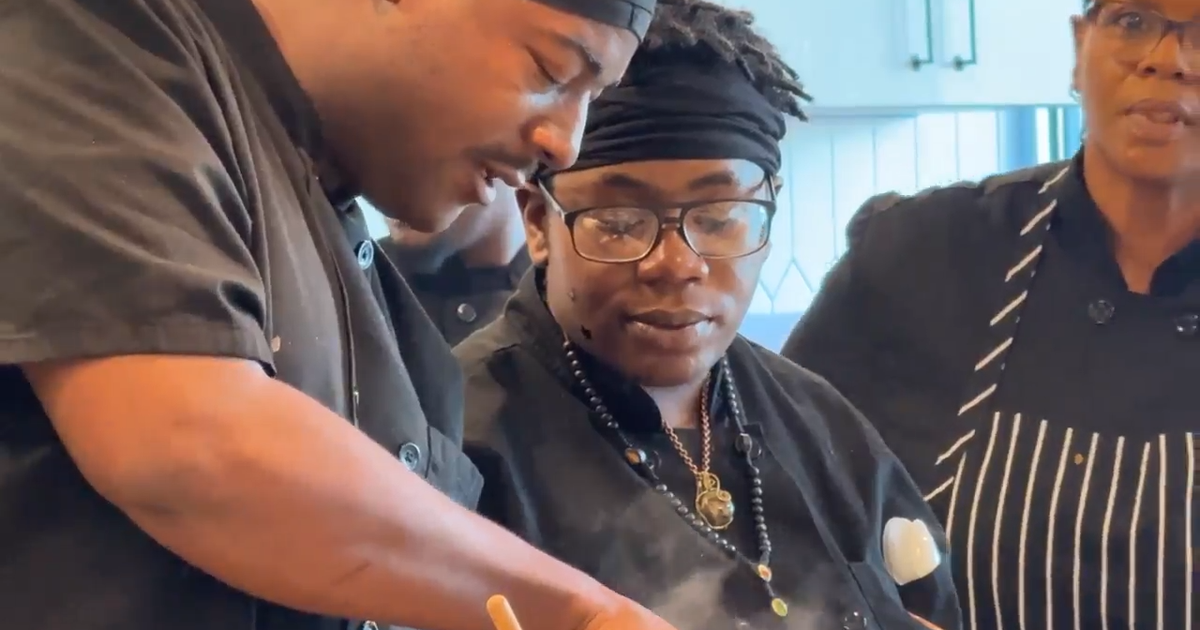Concerns rise after New York City Department of Probation cuts program for at-risk youth
NEW YORK - The city's tightening budget is already having an impact on nonprofits that rely on funding to operate. The Department of Probation pulled the plug on the Next STEPS program for at-risk youth.
Next STEPS was the only probation department program that intercepted young people before they entered the criminal justice system, and the mentors fear they will now miss many of these crucial connections.
Free food, friendship and financial literacy engaged the minds meeting at the Children's Village in Harlem on a weekday evening in November.
"I always say they come for the program; they stay for the personalities," said former Next STEPS program manager Arnell Jackson, who also runs programming at the Children's Village.
Jackson and finance instructor Nancy Wheeler from ViableEdu donated their time and professional advice without pay for the workshop, now a regular occurrence for Jackson.
Jackson received a letter from the Department of Probation in late August, informing him his program based at the Polo Grounds Towers in Washington Heights since 2014 would close the following week, along with the 14 other NYCHA sites with Next STEPS branches.
Jackson said later conversations cited a lack of evidence of success, despite submitting monthly data reports.
"What can you write that can accurately explain how you've seen a young person stop hanging out in the street, and they started to try new things and go different places?" Jackson asked.
Raliek Mitchiner, 23, offered his own turnaround story as proof.
"It was just a lot of fighting," Mitchiner remembered from his early teens. "A lot of resentment, you know, to my family and stuff like that."
He left juvenile detention at 16, returning to school and graduating after meeting the credible messengers at Next STEPS, who shared similar experiences.
"What really helped me is the mentorship," Mitchiner said. "I feel like this is something that's lacking in the community, you know, mentorship, therapy and stuff like that."
Another graduate recruited his sister Janel Valentine after the program paid for his passport and took him to Toronto.
"It's not fair," Valentine said. "They're not giving us a chance to change. They're not giving us a chance to actually benefit."
Just about half of the 200 participants from Polo Grounds had prior criminal records, but so did many of the program staff. They are now struggling to find new jobs.
Jackson emphasized the entire program's $2.5 million budget is a drop in the bucket compared to what is spent on incarceration.
"We're going to catch you before the city spends a quarter of $1 million attempting to correct where you went wrong," Jackson said. "It doesn't make sense."
In a response to CBS New York, the Department of Probation stated:
"Our young people in NYCHA deserve the best resources and support that New York City has to offer, and that is what the Department of Probation provides. Based on a thorough annual evaluation, DOP has determined that young New Yorkers living in public housing can get the mentorship support they deserve through other existing programs and will not renew this $2.5 million program. Every single New Yorker served by this program will be able to get mentorship support from the exact same providers through other DOP and city programs, including Arches, Blue Chips, and Girl Talk."
Have a story idea or tip in Harlem? Email Jessi by CLICKING HERE.








